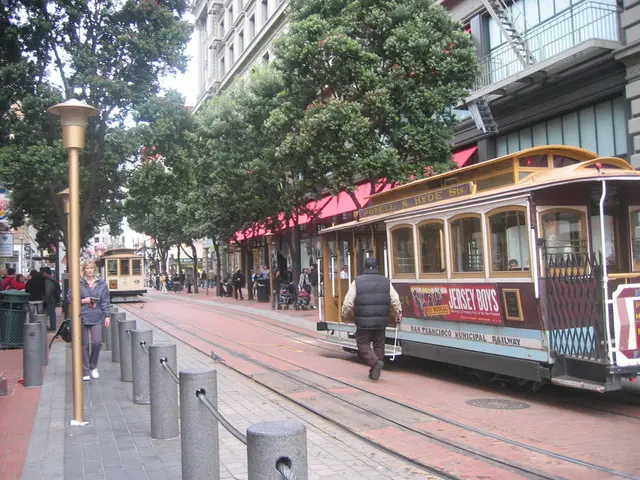Common Practices Among Tourists in Spain, Italy, France, Greece, and Portugal That Locals Often Disapprove Of, Based on Psychological Perspectives
In Southern Europe, travelers often find themselves in a world where tipping, splitting, and haggling have different meanings compared to other regions. Here are some tips to help you navigate this fascinating part of the world with ease and respect.
Firstly, it's essential to understand that mealtimes in Southern Europe are considered social containers and are not meant to be rushed. Asking for the check immediately after finishing a meal is considered a violation of shared time norms. Instead, take the time to enjoy the company and the conversation.
Tipping is another area where cultural nuances come into play. Service charges are often included in the bill, and tips are lighter and more discreet. Rounding up the bill or leaving small change is normal, but dramatic, performative tipping can feel like status theater and may be perceived as unnecessary.
In markets, bargaining is expected in Greece, but doing it aggressively in a Lisbon craft shop selling handmade tiles can be perceived as disrespectful. It's always best to approach bargaining with respect and humility.
When it comes to greetings, locals appreciate it when visitors make an effort to greet them in their native language. In France, you would say "Bonjour"; in Portugal, "Bom dia"; in Spain, "Buenos días"; in Italy, "Buongiorno"; and in Greece, "Kaliméra". Greeting before making a transaction is also customary in much of Southern Europe.
Attention, humility, and presence in ordinary moments are key to participating rather than just extracting from a place. Noticing first before acting can lead to a warmer reception from locals.
However, there are some behaviors that are universally discouraged. Tourists who speak at full volume, narrate plans loudly, or shout across plazas may trigger norm enforcement. Similarly, failing to greet locals is considered abrupt and may be perceived as a "face" threat, signaling task-first, person-second.
In some countries, it is customary to pay before ordering at bars, while in others, this is not the norm. It's always a good idea to ask if you're unsure.
Dress codes also vary. In Italy and Spain, walking shirtless through town or stepping into churches with bare shoulders is considered disrespectful. It's essential to respect local customs and dress appropriately.
Remember, travel becomes richer when we switch from extraction to participation. By following local customs and norms, not only will locals judge you less, but they'll often welcome you more.
Understanding these cultural nuances can help us avoid frictions and improve interactions with locals. Psychology can help us understand why frictions happen in travel, and it provides levers to improve interactions with locals. As the author of the book "Hidden Secrets of Buddhism: How to Live with Maximum Impact and Minimum Ego," Lachlan Brown, once said, "The goal of travel should be to let a few places collect you, even for an afternoon, rather than just collecting countries."
By being mindful of local customs and norms, we can ensure that our travels are not only enjoyable but also respectful and enriching. Happy travels!
Read also:
- Struggle for Wetlands, Wildlife Preservation, and Youth-Driven Conservation Movement Led by Matthew Vincent Tabilog in the Philippines
- Weekly proceedings in the German Federal Parliament (Bundestag)
- Upgraded Delights: A Comparison of Overcooked and Overcooked 2, Revealing 3 Enticing Enhancements Worth the Excitement
- Artificial Breeding Methods Evolving in Equine Reproduction






